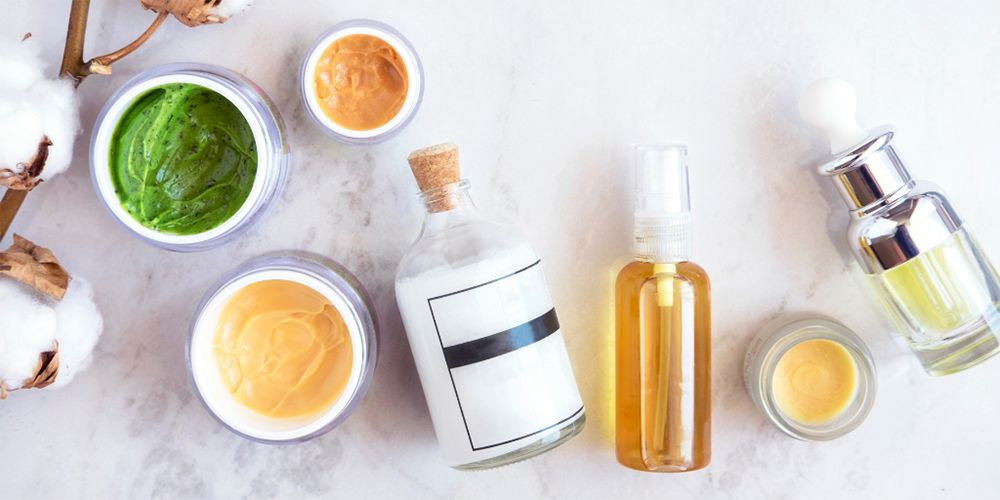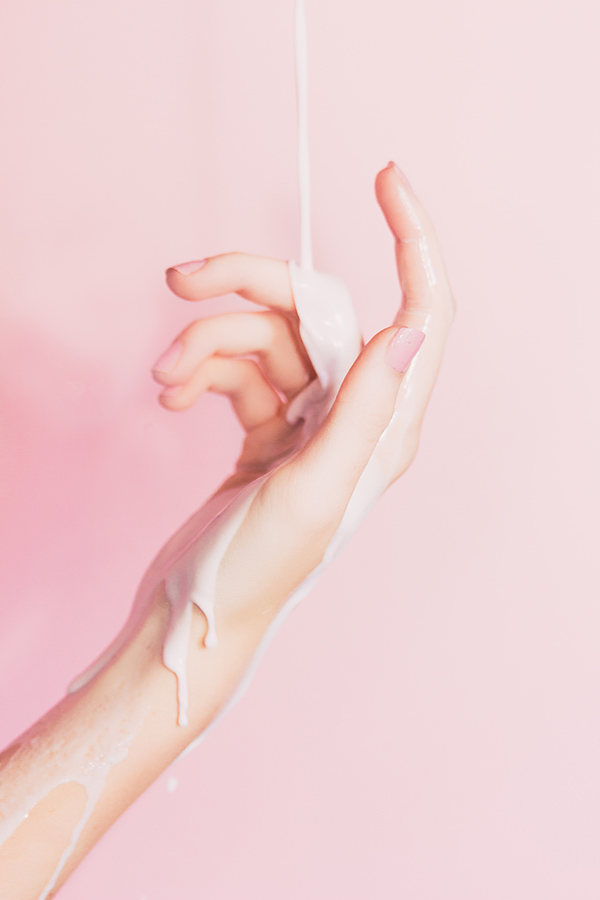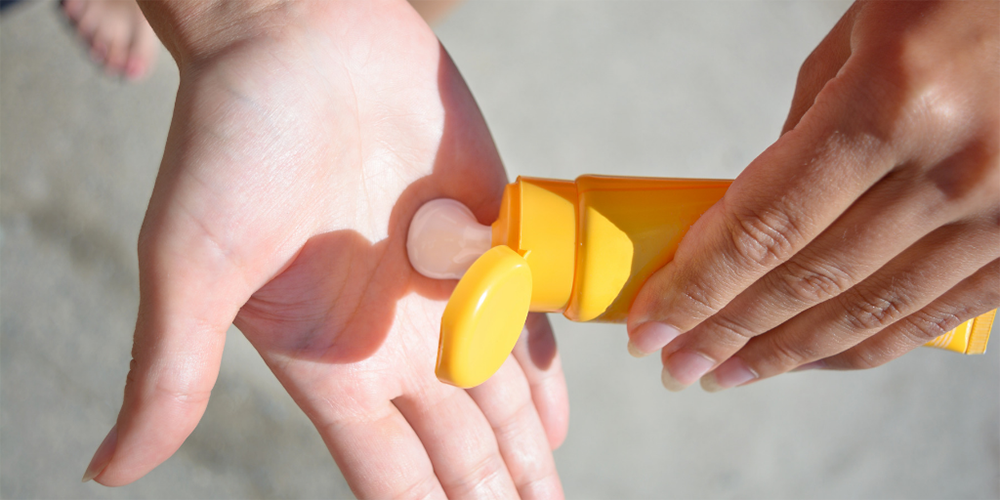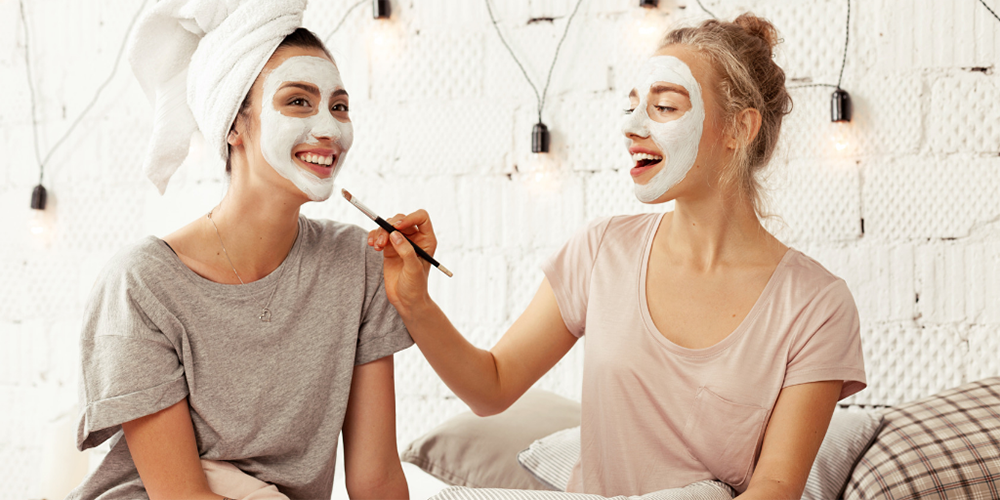Last updated on 14th June 2020 by Sarah Sarsby

Today’s post is an in-depth and helpful guest post about the worst skincare mistakes you can make.
I think it’s important to know what’s good for your skin as well as what can be damaging or harmful because you’ve only got one skin.
As consumers, we’re exposed to hundreds and hundreds of different companies all telling us about the amazing results you’ll see if you purchase their products. A lot of this information is conflicting and can leave you wondering: so what actually works for my skin?
That’s why posts like these can share some important insights into the world of skincare and can help bust some of the skincare myths some companies so mindlessly push onto us in a desperate attempt to make a sale. That’s not to say all companies are bad, though, it’s just about being mindful and informed.
So, what are the 5 worst skincare mistakes you can make? Matthew Jones tells us the T…
About the author
Mathew Jones is a freelance writer that mostly writes about health and beauty. When not writing, he likes to spend time with his family and read crime fiction.

Washing and caring for your skin should be a simple process. It’s something you have done for as long as you have lived, but you might be doing it wrong.
In this article, we will take a look at some of the biggest skincare mistakes that you could be making. From not cleansing your skin correctly to drinking too much coffee, these simple mistakes could contribute to breakouts and older looking skin.
1. Not cleansing enough
Do you remember as a child being made to wash your face as soon as you woke up and before bedtime? There was a good reason for this, it turns out cleansing your skin at least twice a day is critical to maintaining healthy skin.
Cleansing your skin is important because it removes the build-up of dirt and oil which your skin comes into contact with. If you work at a computer every day, you will probably be surprised how much bacteria you transport from your keyboard to your face just by touching it.
Microbiologist James Francis did a study in 2008 where he swabbed over 30 keyboards and a toilet seat. He found that four of the keyboards had harmful bacteria, while one of the keyboards had 5 times as many germs as the toilet seat.
Daily cleansing will get rid of any bacteria on your skin along with oils and other dirt which will block your pores.
Blocked pores caused by a build-up of dirt and oil can stop essential oils from reaching the surface of your skin. When this happens the bacteria on your skin penetrates your skin causing inflammation, which results in acne.
Clearing your pores by using a cleanser twice a day will decrease the chance of an acne break out considerably.
We asked Skincare Expert Dr Shah what would happen if you didn’t cleanse your face.
“If you stopped washing for a long period you can expect the development of serious acne. Your skin would become very itchy and dry which could result in bacteria being able to enter the skin and cause serious infection.”
Dr Shah
I doubt anyone who is reading this post is at the point where they are not cleansing their skin, but it’s worth pointing out that most people don’t cleanse enough.
If you’re looking for a skin cleanser that will work for your skin, you could check out Cosmopolitan’s post on the best skin cleansers for every skin type.
2. Popping pimples
If you take anything away from this article, let it be this tip.
Popping your pimples can be tempting and some even find it therapeutic. Heck, there are even YouTube channels dedicated to popping zits (warning, some readers may find it gross).
When you press on your pimple you are forcing the contents of that pimple out which causes a tear in your skin, this can create an entry point for bacteria to enter and cause an infection.
If you’re still not convinced and the little pimple on your face is still tempting you to squeeze it, you should know that you are stopping your body from doing its thing. Your body knows when it needs to get rid of excess oils or dirt and a pimple is your body’s response to doing something about it.
Finally, if you’re still ready to pop that zit, you should know there is a good chance of more pimples showing up on your face if you do so. When you pop a pimple, you are spreading the bacteria and oil inside of it across your face. This is the reason you often get a second or third pimple showing up after popping your first pimple.
Instead of popping your pimples you should instead use a product that contains salicylic acid. Look for a product that contains at least 2% salicylic acid as this will help cleanse your pores by pulling out any excess oils.
3. Not wearing an SPF

Many people make the mistake of only wearing a sun protection cream in the summer, but skincare experts recommend using an SPF cream all year round, even in the winter.
Using a sun protection factor of at least 30 can protect your skin from harmful UVA and UVB rays.
Ultraviolet B rays can cause sunburn and skin cancer, while ultraviolet A penetrates deeper into your body, causing your skin to age. Using an SPF cream can protect your body from both.
Although you’re more likely to burn in the summer, the harmful ultraviolet rays are present all year round so you really should do as much as possible to protect yourself against it.
If you want to protect your skin year-round you could look to add an SPF into your daily moisturising routine. Many of the bigger brands like L’Oreal offer moisturisers with SPF built-in.
4. Drinking too much coffee
Sorry coffee drinkers, I know it’s not the news you wanted to hear but drinking too much coffee is bad for your skin.
Caffeine is a dehydrator, just like eating too much salt or drinking alcohol, and when your body becomes dehydrated, you can see the effect on your skin.
Another reason why drinking too much coffee is bad for your skin is that caffeine can magnify your stress levels. When you drink too much coffee and have a stressful lifestyle, your body overreacts by releasing hormones into the body such as cortisol. Cortisol has been shown to increase the oil in your glands which leads to pore blockages and breakouts.
I recently read a good blog post on the effects of quitting coffee for 3 weeks which is worth a read.
The good news, though, is that you don’t have to go cold turkey and quit coffee completely. If you can cut down your coffee to 1-3 cups a day, you should still see the benefits just as long as you are getting in more water to keep yourself hydrated.
5. Not understanding your skin type
Understanding your skin type is fundamental in understanding how to look after it and what products to use.
As a teenager, I used to have very oily skin and would suffer from breakouts all of the time. I also didn’t understand my skin type. Out of desperation, I would use a wide range of products for different types of skin to try and treat the problem. Of course, this didn’t work and only made the problem worse. If I knew then the importance of skin types, I could have saved myself a lot of bother.
Depending on what skincare expert you choose to listen to, there are many different skin types. I will list the most common ones below.
Oily skin
Spotting oily skin is quite easy as you can feel your skin a few hours after washing and it will feel damp and slick. Areas to look out for are the forehead, down the nose and the chin area.
To combat oily skin, you should look to use products that contain salicylic acid. Salicylic acid penetrates your pores and extracts excess oils.
Dry skin
People who suffer from dry skin are on the opposite side of the spectrum from those who suffer from oily skin. You can tell if your skin is dry if it feels tight after cleansing.
Dry skin can also become flakey if not treated with a moisturiser.
Sensitive skin
Your skin type is sensitive if you find yourself reacting to skincare products or if you’re super sensitive to the sun. People who suffer from asthma or eczema are also far more likely to have sensitive skin types.
Your skin can also become sensitive if you use products that are too harsh for your skin or if you over-exfoliate.
If you have sensitive skin, finding skincare products is more about finding ingredients that work for you. The easiest way of doing this would be to visit a dermatologist so they can examine your skin and then recommend products based on your exact needs.
Combination skin
As the name suggests, combination skin is made up of different areas of skin that need different treatment types. If you suffer from a combination skin type, your forehead and nose could be oily and other parts of your face could be dry.
Combination skin types will need to be spot treated. In the example listed above, you would need to use two different products to treat the affected areas separately.
Normal skin
In skincare, a normal skin type simply refers to someone who doesn’t have an excessive skin type. Normal skin types won’t have too much oil or too little and your skin won’t be sensitive. If this sounds like your skin, you can get away with using most products on the market, all you need to do is monitor your skin and see if it reacts to the product.
Skin types are complicated and one article isn’t enough to discuss all the different types of styles and the products you can use, therefore I would highly recommend going to your local dermatologist to find out your skin type and the products you can use on your skin.
Conclusion

Looking after your skin in an ideal world should be a simple process, but we all know that nothing is ever that easy. I see people making the simple mistakes above every day, but now you have this newfound skin knowledge, you don’t have to be one of them. I
f you found this article useful or know someone who could benefit from it, please give this article a share. The more people who know about these simple skincare mistakes and how they can be fixed, the better.
Thank you Matthew for sharing this useful post about skincare mistakes.
Ever since I found out that wearing SPF very day was essential and not just during the summer, I fixed up and I now wear it day in, day out. After all, I’d prefer to slow down the signs of ageing and protect my skin from sun damage.
Also, cutting down on sugar hugely helps your skin. I know this through personal experience!


A really interesting read! I also had no idea that coffee had an impact on my skin – something for me to think about! Thank you for the post Mathew!
I need to scale back on the coffee while I’m at work lol
I spent a long period of my life not understanding my skin type and I feel that is one of the biggest problems when it comes to making skincare mistakes. I ended up going to a makeup artist who told what moisturiser and facewash to use!
This is a great post, keep writing!
Ah yes, it can get quite confusing and I feel like your skin changes a lot depending on the weather and such. But trying out different products can really help 🙂
This is such an informative and great post to create, I’m guilty of one or two of these mistakes sadly. I think this is great for people who have no idea about skincare as it’s so helpful for what not to do so you can work out what’s best for your skin. I love how you consulted an expert too as it really backs up your points. A great post again lovely!
Alex xx
I’m glad you liked the post! It can be hard not to get into a good routine with your skin, especially as there are so many products and a lot of conflicting advice out there. It’s just about doing your research and finding out what works for you, I think 🙂 xxx